Conflict Zones
After two years of war in Sudan, the world can no longer plead ignorance | Conflict
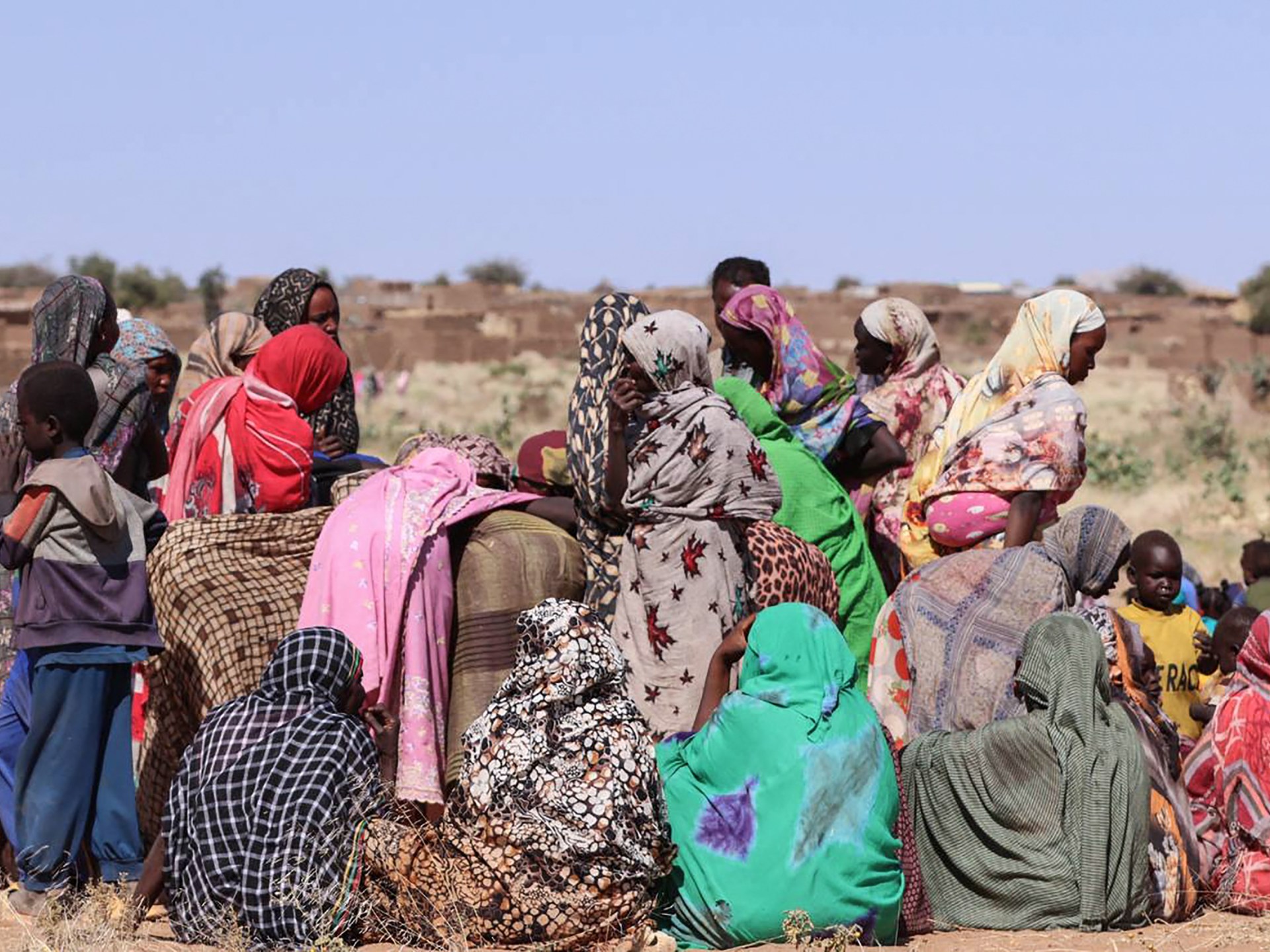
Two years ago this week, a conflict erupted in Sudan that few anticipated would escalate so rapidly or persist for so long. What began as a violent power struggle has become one of the worst and most neglected humanitarian crises of our time.
The country has been plunged into a state of devastation marked by mass displacement, hunger, violence and disease.
The numbers are staggering. More than 30 million people need humanitarian aid. At least 15 million people are currently displaced. Some 11.3 million are displaced inside Sudan and 3.9 million people have fled to neighbouring countries, making this the world’s largest displacement crisis. More than 20 million people urgently need access to healthcare.
Behind these numbers are millions of individual stories. Parents fearing for the life of their child suffering from severe malnutrition. Families stranded in areas with no food, safe water or medical care. Women, men and children dying because it is too dangerous to go to a health centre. A whole generation of children missing out on routine vaccinations.
When I visited Sudan last September, I met Soueda, a bright nine-year-old girl who fled her hometown and was living in a displacement camp in Port Sudan, where the World Health Organization (WHO) is supporting primary healthcare services. She left everything she knew behind and told me she hadn’t been to school in two years.
In Port Sudan, WHO colleagues spoke with Ashwa and her youngest child, who was being treated for severe acute malnutrition at one of the WHO-supported stabilisation centres operating there. “When my baby stopped taking any food or drink, and stopped moving, with swelling in his arms, I knew his life was in grave danger,” she said, while holding her son. “I feared I would lose him until we came to this hospital where he is getting special milk and medicines. He is now able to move, has resumed breastfeeding and can even smile. Without the care at this stabilisation centre, I would have lost him.”
Yet, too few of these stories reach the headlines. This silence is dangerous. It breeds indifference and will cost more lives.
The war has left Sudan’s health system devastated, especially in hard-to-reach areas. In assessed states, 62 percent of health facilities are partially functional and the remaining 32 percent are not functional, with a lack of clarity from other hard-to-reach areas like the Darfurs and Kordofans. Patients can’t access basic treatments due to ongoing fighting and repeated attacks on health facilities and health workers.
Two-thirds of all states in Sudan are experiencing more than three different disease outbreaks, including cholera, measles, malaria, dengue and diphtheria. Cholera alone has killed at least 1,500 people.
Malnutrition is widespread among children, pregnant women and breastfeeding mothers. Famine has been confirmed in five areas and is projected to expand to 17, with tens of thousands of lives at immediate risk.
With our partners, WHO is in Sudan, working to ensure people can access the required care. Despite severely restricted access to people in need and ongoing attacks on healthcare facilities, we deliver life-saving medical supplies, support hospitals and health centres, and run vaccination campaigns.
Since the conflict started, with WHO’s support, over one million patients have received treatment in hospitals, health centres and mobile clinics. Some 11.5 million children have been vaccinated against polio and measles, and 12.8 million people have received cholera vaccines. WHO is supporting stabilisation centres, where during the last two years, 75,000 children suffering from severe acute malnutrition with medical complications have received treatment.
WHO’s response to this crisis has been made possible by generous contributions from partners like the Central Emergency Response Fund, the Japan International Cooperation Agency, the King Salman Humanitarian Aid and Relief Center, the European Union, France, Germany, Italy, the United States and others. Yet, continuous support is critical in 2025 for WHO’s $135m response plan, 79 percent of which is unfunded.
WHO is determined to continue supporting Sudan’s people but we need access to and protection of civilians, humanitarians and medical personnel. Since the conflict started, WHO has verified 156 attacks on health facilities, ambulances, staff and patients, resulting in 318 deaths and 273 injuries. Health workers and facilities must never be targets. In fact, they are protected under international humanitarian law. But there has been blatant disregard for these obligations.
Sudan’s crisis is no longer a national tragedy, it has become a regional threat. The conflict threatens to destabilise neighbouring countries and risks fuelling further displacement, disease and insecurity.
A week after my mission to Sudan, I was in Chad, which is hosting over 750,000 Sudanese. I met families who had walked for days to cross the border in search of safety. Some said their homes had been burned, crops destroyed and animals stolen. They left, and arrived with nothing. When I asked what they needed most, the awful answer I heard again and again was: “Food. We are hungry.”
We can’t say we don’t know what’s happening. The facts are clear and the stories are harrowing. What is missing is more action. We need sustained, unhindered humanitarian access to reach those in greatest need, adequate funding to supply life-saving aid, and above all, a high-level commitment to ending the war.
The views expressed in this article are the author’s own and do not necessarily reflect Al Jazeera’s editorial stance.
Conflict Zones
Trump says US may ‘pass’ on helping end war if Russia, Ukraine resist deal | Russia-Ukraine war News
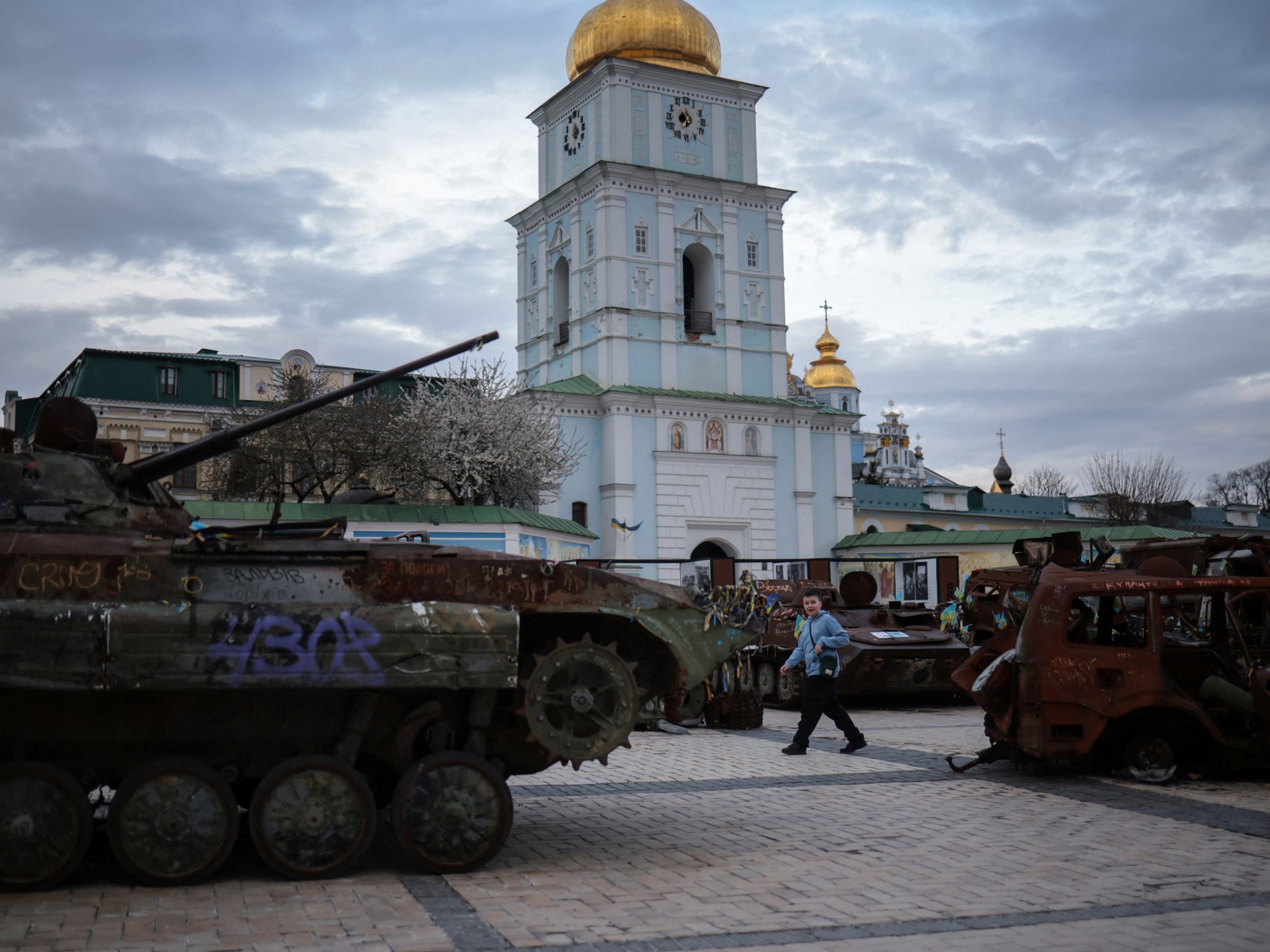
President Donald Trump says the United States will “take a pass” on trying to resolve the Russia-Ukraine war if either Moscow or Kyiv makes it too difficult to end the conflict.
Trump was speaking after US Secretary of State Marco Rubio commented – following talks with European allies in Paris – that Washington would “move on” if a truce did not seem “doable” within days.
The US president refused on Friday to cast blame on either Russian President Vladimir Putin, who ordered the February 2022 full-scale invasion of pro-Western Ukraine, or Ukrainian President Volodymyr Zelenskyy. But he insisted both sides had to make progress.
“Now, if, for some reason, one of the two parties makes it very difficult, we’re just going to say: ‘You’re foolish. You’re fools. You’re horrible people’ – and we’re going to just take a pass,” Trump said.
“But, hopefully, we won’t have to do that.”
Rubio further suggested on Friday that Trump’s patience towards the negotiations is running thin.
“If it’s not possible, if we’re so far apart that this is not going to happen, then I think the president is probably at a point where he’s going to say, ‘Well, we’re done,’” he said.
Trump told reporters on Friday, however, that he did not want to say he was walking away from the talks. He said he still believes there is a good chance to end the conflict.
“It’s coming to a head right now,” he said.
US Vice President JD Vance also said he was “optimistic” a resolution could be reached, while speaking on a trip to Rome.
‘Trying to help’
Ukraine has agreed to a full temporary ceasefire and accused Russia of stalling on a deal to get a better negotiating position.
Putin last month rejected a joint US-Ukrainian proposal for a full and unconditional pause in the conflict, while the Kremlin has made a truce in the Black Sea conditional on the West lifting certain sanctions.
When asked if Putin was stalling, Trump, who held direct talks with the Russian leader in February, said: “I hope not … I’ll let you know soon.”
Trump also denied he was being “played” by the former KGB agent, who denied Russia was going to invade right up until the eve of the attack.
“Nobody’s playing me, I’m trying to help,” Trump said.
Russia’s Foreign Minister Sergey Lavrov said in an interview with the Kommersant newspaper published on Monday that it is “not easy” to agree on “key components” of a peace deal.
He did, however, concede that the Trump administration is trying to understand the “root cause” of the conflict, which he said was triggered by “the actions of Washington and Brussels” in having “brought the current regime to power in Ukraine”.
Fighting continues
Amid ceasefire negotiations, on the front line on Friday, a Russian missile strike killed one person in the northeastern Ukrainian city of Kharkiv, with a separate drone attack killing another person in the nearby city of Sumy.
At least five children were among dozens of people injured in Friday morning’s attack on Kharkiv that damaged 15 residential buildings, a business and an educational facility, according to Kharkiv Mayor Ihor Terekhov and emergency services.
Reporting from Kyiv, Al Jazeera’s Zein Basravi said Russia also targeted Lviv, Dnipro, Mykolaiv and Kyiv.
“We saw multiple missile, drone, artillery and rocket attacks in cities across the country about 5am local time when curfews come to a close and people begin their daily lives,” he said.
“[In Kharkiv], civilian infrastructure was damaged, one person was killed, and 74 were injured. Of the 74, five were children,” Basravi reported.
President Zelenskyy said on Thursday that although Russia had seemingly scaled back its targeting of energy infrastructure, the overall volume of missile and drone attacks remained unchanged. It is striking Ukraine’s civilian sites instead, he added.
Russia has said it had hit “key drone production sites” and Ukrainian military airfields.
Moscow also warned on Friday of potential escalation if Germany proceeds with plans to send Taurus long-range missiles to Ukraine. Speaking at the United Nations on Thursday, Russia’s ambassador, Vassily Nebenzia, declared that such a move would mark Germany’s direct entry into the war.
“These countries are waging a war against Russia using their proxy forces,” he said. “Delivering Taurus missiles would be another step toward escalation.”
Conflict Zones
‘How do I live like this?’ asks Gaza boy who lost arms in Israeli attack | Gaza News
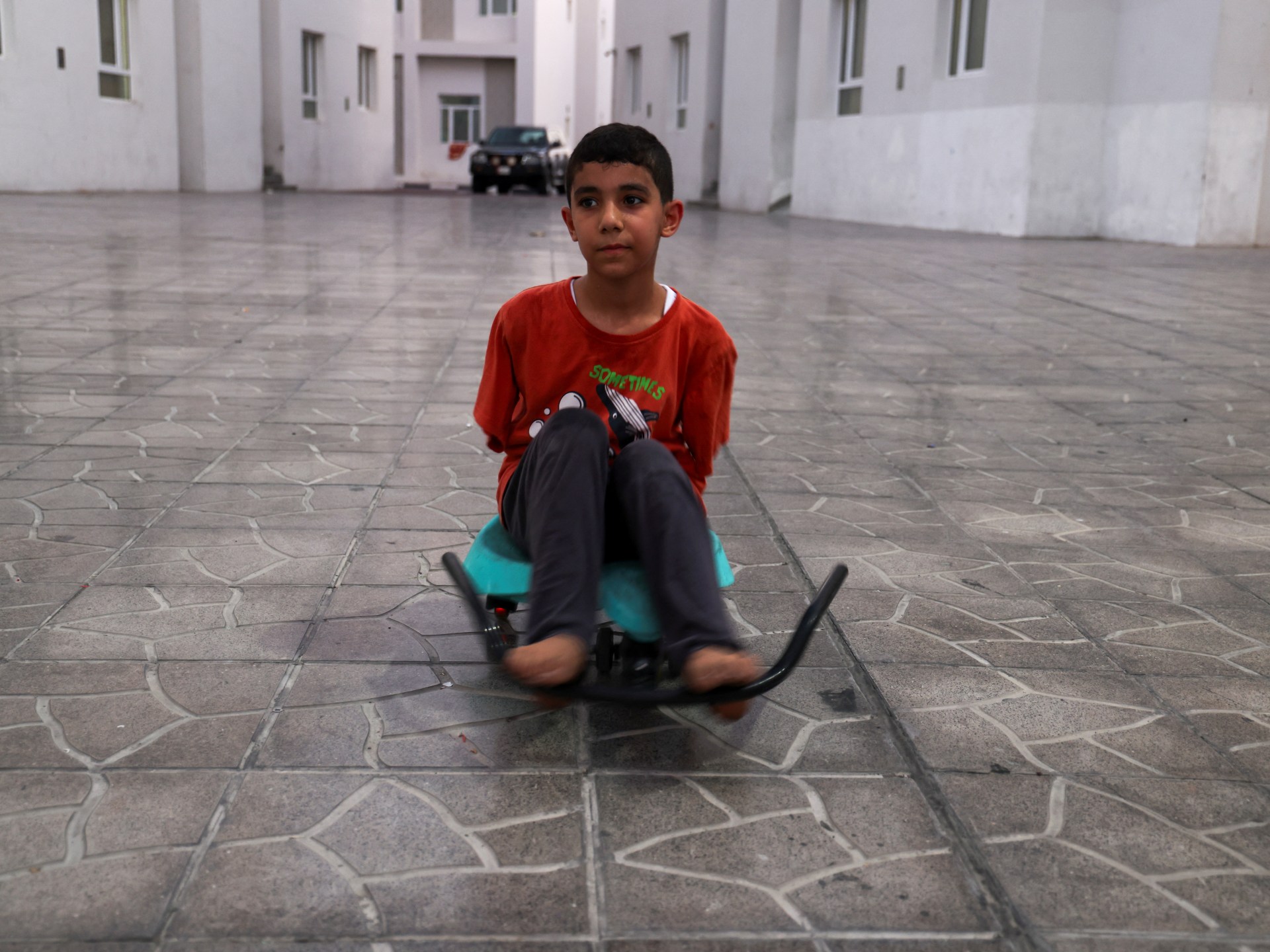
An image of Mahmoud Ajjour, 9, who was severely wounded in an Israeli strike, won the 2025 World Press Photo of the Year award.
A Palestinian child who was severely wounded in an Israeli drone attack on Gaza last year, and who was pictured in an image that won the 2025 World Press Photo of the Year award, says he has been struggling to adapt to life since losing both his arms in the explosion.
Speaking to Al Jazeera from Doha, Qatar, where he has been receiving treatment, nine-year-old Mahmoud Ajjour recalled the moment the bomb exploded, targeting his home in March 2024.
At first, Ajjour, who hails from Gaza City’s old town, said he did not realise he was wounded.
“I thought I had simply fallen. But I found myself on the ground, exhausted, and wondering what had happened,” he told Al Jazeera.
In reality, one arm “flew off, and one flew and fell right beside me”, he added.
Still unaware that he had sustained serious wounds – wounds that mutilated his entire body – Ajjour said he looked around and saw his arms. Although they looked familiar, his brain still could not comprehend that they had been blown off.
“My mother then told me that I lost my arms,” Ajjour recalled. “I started crying. I was very sad, and my mental state was very bad.”
His mental health deteriorated further when he, like many others in Gaza, had to undergo surgery without anaesthetics due to a severe lack of medical supplies. Throughout the war, Israeli forces have largely kept vital border crossings shut, preventing the entry of much-needed medical supplies, as well as food and other aid, including fuel.
“They performed surgery on me while I was awake,” Ajjour said, the shock still evident in his voice.
“I couldn’t bear the pain, I was screaming very loud. My voice filled the hallways.”
‘Everything is difficult’
Ajjour is one of thousands of children in Gaza who are suffering life-changing injuries due to relentless, indiscriminate Israeli bombardment.
According to the United Nations Children’s Fund, more than 10 children each day have lost one or both of their legs since October 7, 2023, when Israel launched its ongoing genocide in Gaza.
That is more than 1,000 children.
“Gaza now has the highest number of children amputees per capita anywhere in the world – many losing limbs and undergoing surgeries without even anaesthesia,” UN Secretary-General Antonio Guterres said in December.
Ajjour is now learning to write, play games on his phone, and dress himself using his feet – but still needs special assistance for most daily activities.

He now longs for the days when his arms were still intact.
Before the attack, Ajjour said he used to go to the market and buy his mother vegetables and food she needed.
“Now, everything is difficult, including feeding myself, helping myself to the bathroom … but I try my best,” he said. “I manage my life like this. I make it work.”
Ajjour dreams of a future where he can return to Gaza and help rebuild the devastated enclave.
He hopes the world can “end the war on Gaza”.
“We want to live on our land. We don’t want the Israelis to take it,” he said.
“People are dying there [in Gaza]. And my home was bombed. How could I live like this?”
Israel’s ongoing assault on the besieged and bombarded territory has so far killed more than 51,000 Palestinians and wounded at least 116,505 others, according to Gaza’s Ministry of Health.
It has also forcibly displaced most of its 2.3 million strong population, ravaged most of the land, damaged basic infrastructure and dismantled its already-struggling healthcare system.
Conflict Zones
Iran has ‘doubts’ about US intentions ahead of nuclear talks | Politics News
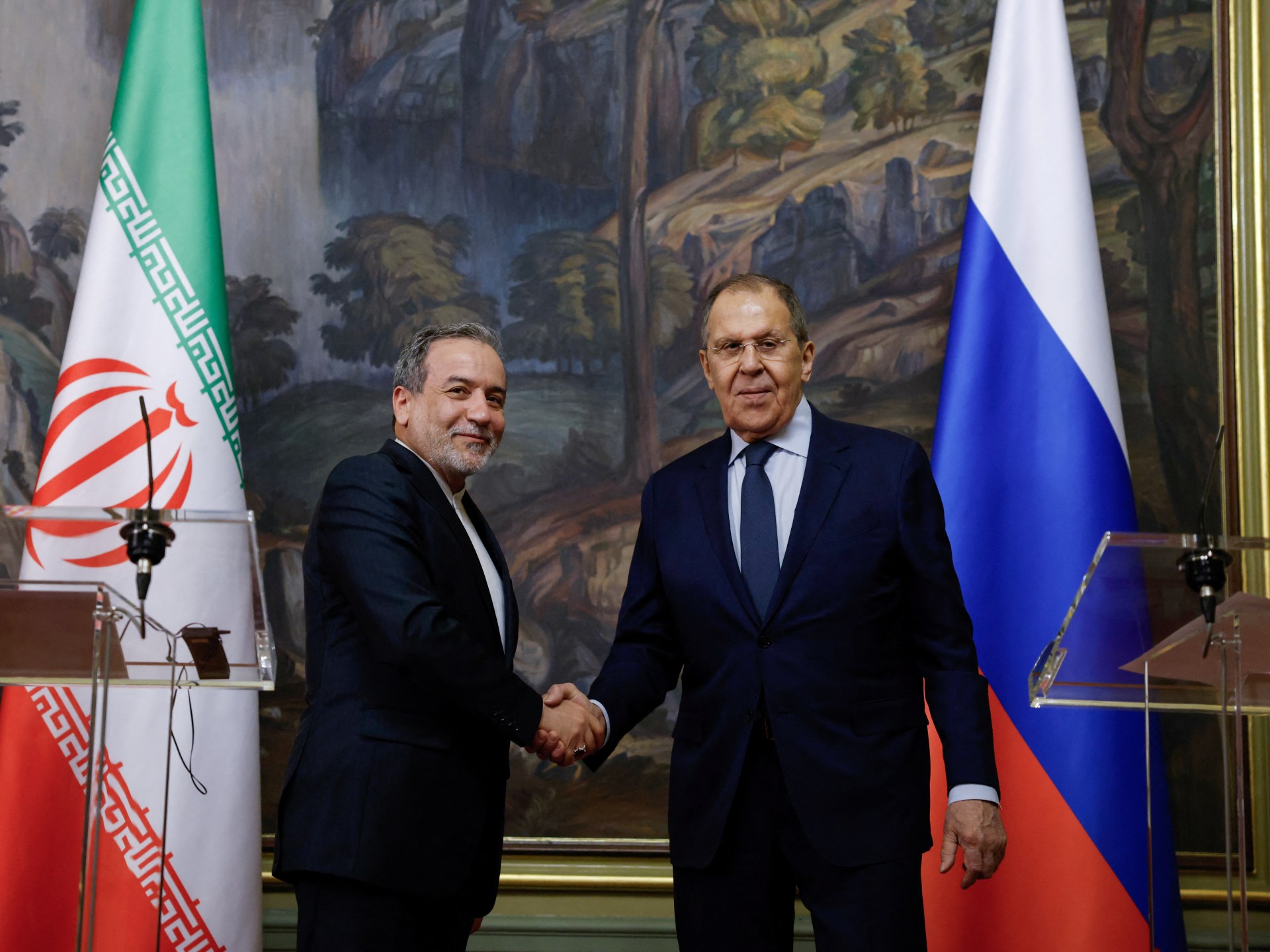
Iran’s Foreign Minister Abbas Araghchi has cast doubt over the intentions of the United States a day before a second round of nuclear talks is set to take place with Washington.
The new round will come a week after the two countries held their highest-level negotiations since US President Donald Trump unilaterally abandoned a 2015 landmark nuclear deal three years later. Iran has since abandoned all limits on its nuclear programme, and enriches uranium to up to 60 percent purity – near weapons-grade levels of 90 percent.
“Although we have serious doubts about the intentions and motivations of the American side, in any case, we will participate in tomorrow’s negotiations,” Araghchi said on Friday during a news conference in Moscow with his Russian counterpart, Sergey Lavrov.
Araghchi will set off on Saturday for Rome for a new round of Omani-mediated talks with US Middle East envoy Steve Witkoff.
“We are fully prepared to pursue a peaceful resolution for Iran’s peaceful nuclear programme,” Araghchi said.
Lavrov said Moscow was ready “to play any role that will be useful from Iran’s point of view and that will be acceptable to the United States”.

Russia, which commands the world’s largest confirmed arsenal of nuclear weapons, has deepened its military ties with Iran since it launched its offensive on Ukraine in February 2022, and has played a role in Iran’s nuclear negotiations in the past as a veto-wielding United Nations Security Council member.
Western countries, including the US, have long accused Iran of seeking to acquire nuclear weapons – an allegation Tehran has consistently denied, insisting that its programme is for peaceful civilian purposes.
Al Jazeera’s Tohid Asadi, reporting from Tehran, said there is “a cloud of mistrust in the air” despite statements made by Araghchi.
“With the talks ahead, there is a perception among Iranians that there is this mistrust that exists pertaining to the United States, but going back to the statement that were heard today … we saw a mix of doubt and hope at the same time,” Asadi said.
“Iran is saying it is not interested in putting other issues … [such as] nuclear capabilities … on the table of negotiations,” he added.
‘Unrealistic demands’
US President Donald Trump has threatened to attack Iran if it does not agree to a deal with the US.
On Tuesday, Iran’s Islamic Revolutionary Guard Corps said the country’s military capabilities were off limits in the discussions.
The official IRNA news agency reported Iran’s regional influence and its missile capabilities, long criticised by Western governments, were among its “red lines” in the talks.
On Wednesday, the Iranian foreign minister said Iran’s enrichment of uranium was not up for discussion, after Witkoff called for it to end.
“If there is similar willingness on the other side, and they refrain from making unreasonable and unrealistic demands, I believe reaching an agreement is likely,” Araghchi said during Friday’s news conference.
Lavrov emphasised that any potential agreement should only pertain to the nuclear issue.
“This is a fundamental point that must be taken into account by those who try to burden the negotiations with non-nuclear issues and thus create a very risky situation,” he said.
Iran told the US during last week’s talks it was ready to accept some limits on its uranium enrichment, but needed watertight guarantees Trump would not again ditch the pact, an Iranian official told the Reuters news agency on Friday, speaking on condition of anonymity.
The official said Tehran’s red lines “mandated by Supreme Leader Ayatollah Ali Khamenei” could not be compromised in the talks, adding that those red lines meant Iran would never agree to dismantle its centrifuges for enriching uranium, halt enrichment altogether, or reduce the amount of enriched uranium it stores to a level below the level it agreed in the 2015 deal.
It would also not negotiate over its missile programme, which Tehran views as outside the scope of any nuclear deal, Reuters reported.
US Secretary of State Marco Rubio said earlier on Friday that the US administration is looking for a peaceful solution with Iran but will never tolerate the country developing a nuclear weapon.
Rubio met with British, French and German officials in Paris and pressed them to maintain sanctions against Iran instead of allowing them to run out.
Israel also reiterated its unwavering commitment to preventing Iran from obtaining nuclear weapons, saying it had a “clear course of action” to prevent this.
“Prime Minister Benjamin Netanyahu and I, along with all relevant bodies, are committed to leading a clear course of action that will prevent Iran from acquiring nuclear weapons,” Defence Minister Israel Katz said on Friday.
-

 Conflict Zones1 day ago
Conflict Zones1 day agoHaiti in ‘free fall’ as violence escalates, rights group warns | Armed Groups News
-

 Africa2 days ago
Africa2 days agoRobot waiter becomes a star attraction at Havana restaurant
-
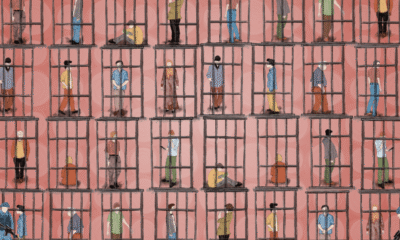
 Conflict Zones2 days ago
Conflict Zones2 days agoA nation behind bars: Why has Israel imprisoned 10,000 Palestinians? | Israel-Palestine conflict News
-

 Sports1 day ago
Sports1 day agoAaron Boupendza: 28-year-old former MLS player dies after falling from 11th floor balcony in China
-

 Sports1 day ago
Sports1 day agoJu Wenjun: Chinese grandmaster makes history by winning fifth Women’s World Chess Championship
-

 Europe2 days ago
Europe2 days agoLive updates: Trump meets with Prime Minister Giorgia Meloni of Italy
-

 Sports2 days ago
Sports2 days agoArsenal reaches first Champions League semifinal in 16 years, with Inter Milan also advancing
-
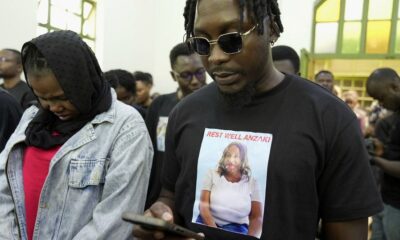
 Africa2 days ago
Africa2 days agoFuneral held in Kenya for TikTok content moderator




